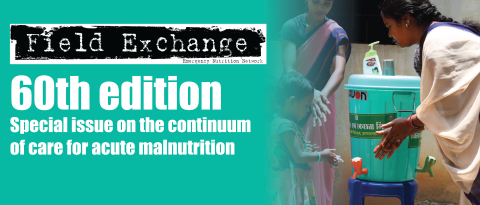Modelling an alternative nutrition protocol generalisable to outpatient (MANGO) study
Upcoming research
Action Against Hunger conducts operational research with academic partners to contribute to building the scientific and operational evidence emerging from field programmes. Its research strategy focuses on testing innovative approaches designed to improve the effectiveness of its humanitarian responses and longer-term programmes, particularly in the treatment of acute malnutrition in children under five years old. The Modelling an Alternative Nutrition Protocol Generalizable to Outpatient (MANGO) study emerged in 2014 from a successful field innovation in Myanmar that used lower doses of ready-to-use therapeutic food (RTUF) in the management of uncomplicated severe acute malnutrition (SAM) (James et al, 2015). This led to the development of the hypothesis that RUTF dosage could be reduced in the management of severe acute malnutrition (SAM) without harm.
The MANGO trial aims to test the efficacy and cost-efficacy of a reduced RUTF dosage for treatment of children aged 6 to 59 months with uncomplicated SAM (defined by weight-for-height z-score <-3 and/or mid-upper arm circumference <115mm) in 10 health centres of Fada N’Gourma district, eastern Burkina Faso. Children recruited between October 2016 and July 2018 were randomly allocated to one of two groups. For the first two weeks children in both groups were given the same amount of RUTF. From week three children in group one received the same standard RUTF dose and children in group two received a reduced dose until their discharge from the programme. All children were given the same basic medical treatment, in line with SAM treatment protocols. Main outcomes measured were weight gain velocity and programme outcomes (children recovered, dead, defaulted, referred and non-respondents). Secondary outcomes measured included body composition, vitamin A and iron status, food intake and dietary diversity.
Findings will be available in 2019 through peer review publication and subsequent summary in Field Exchange. Additional results based on secondary outcomes will be available in 2019 and 2020.
The trial is registered on IRSCTN.
More information can be found on the AAH website and MANGO blog.
References
James PT, Van den Briel N, Rozet A, Israël A-D, Fenn B, Navarro-Colorado C. Low-dose RUTF protocol and improved service delivery lead to good programme outcomes in the treatment of uncomplicated SAM: a programme report from Myanmar. Matern Child Nutr. 2015; Open Access www.ncbi.nlm.nih.gov/pmc/articles/PMC4672709/


